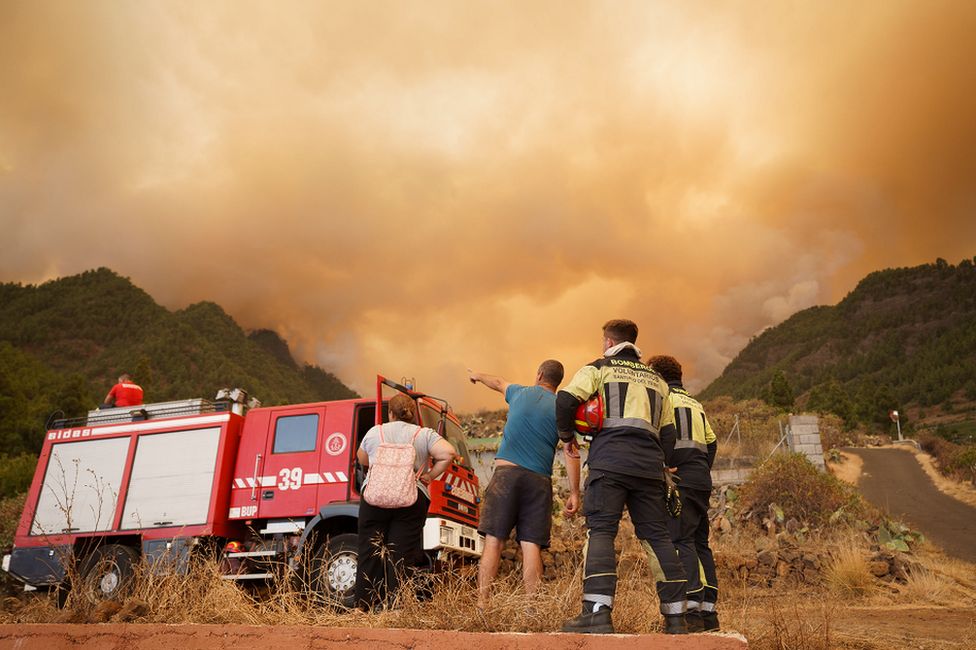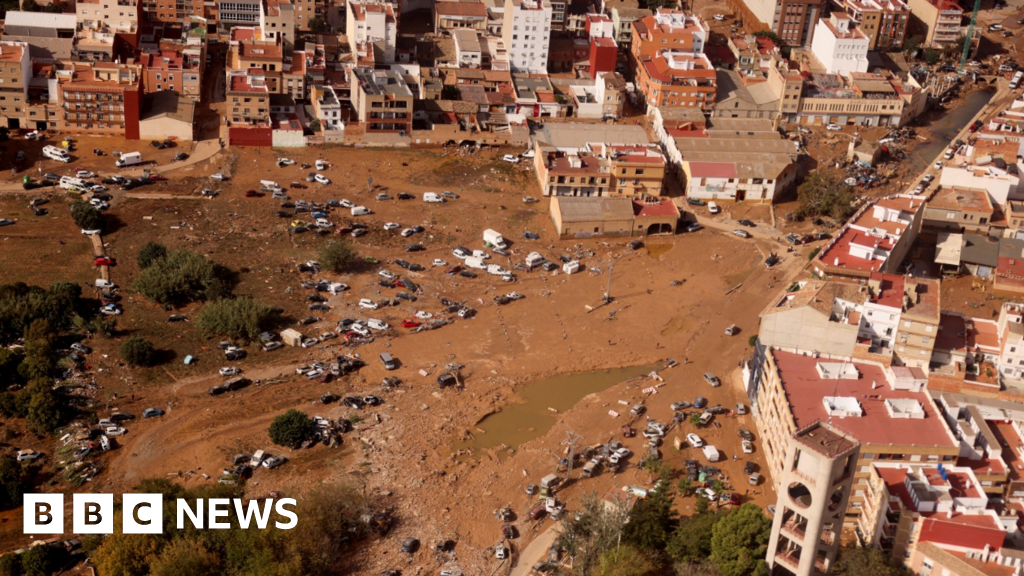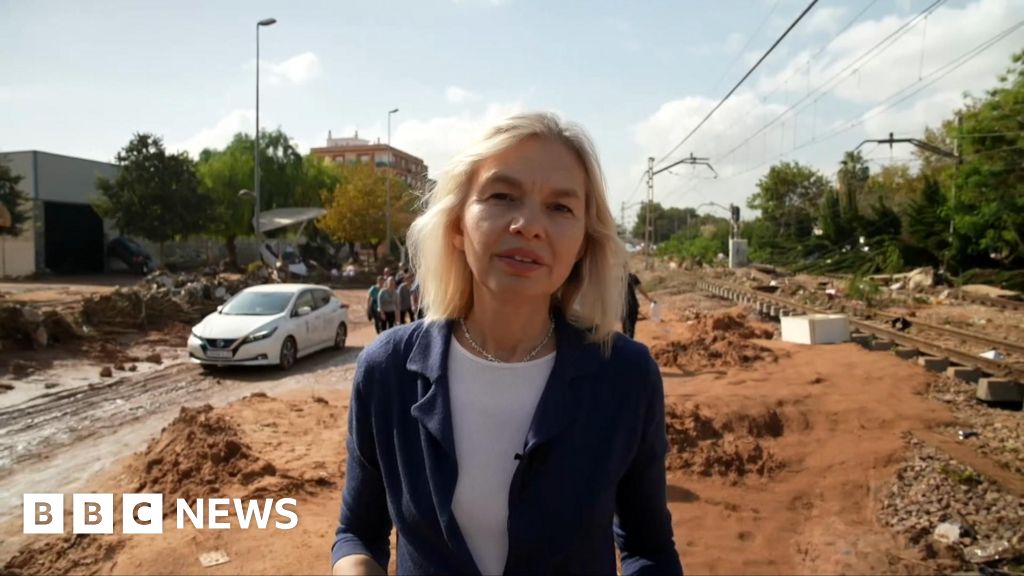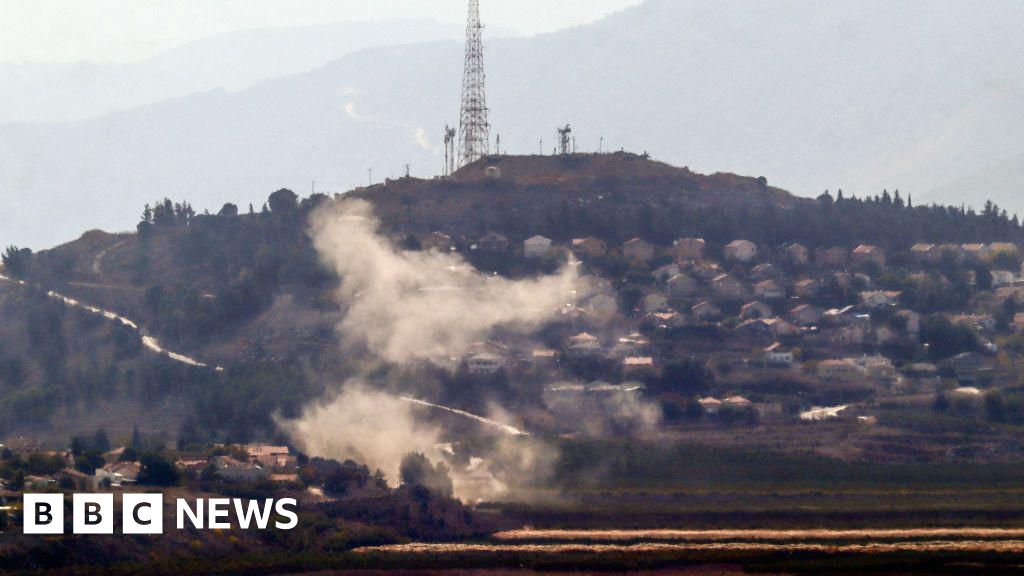ARTICLE AD BOX
 Image source, EPA
Image source, EPA
Aircraft is being deployed to tackle the flames on the island of Tenerife
A major wildfire on the Spanish island of Tenerife has led to the evacuation of five villages.
The fire has spread some 8 sq km (800 hectares) since it started in a nature reserve on the north-east coast of the island late on Tuesday evening.
Local authorities have cut off access to the forest around the Mount Teide volcano, Spain's highest peak, and say secondary fires have now broken out.
Helicopters spraying water have been seen flying over the area.
The main blaze is spreading through woodland and ravines in the Candelaria and Arafo areas, making it difficult for firefighters to tackle.
Rosa Davila, president of the Tenerife Council, said aircraft were necessary because it was a steep area.
"The blaze has a huge potential, we have asked for additional means," she said on local radio.
The villages of Arrate, Chivisaya, Media Montaña, Ajafoña and Las Lagunetas were evacuated on Wednesday morning.
Pedro Martinez, head of Tenerife's emergency services, said multiple secondary fires had also broken out.
Photos show large flames engulfing parts of the forest, and thick plumes of smoke billowing into the sky.
As of Wednesday evening, there was no apparent disruption to arrivals or departures at Tenerife's South and North airports.
Image source, EPA
Image caption,Arrate, Chivisaya, Media Montaña, Ajafoña and Las Lagunetas were evacuated
It comes after the Canary Islands were hit by a heatwave that has left many areas bone dry, increasing the risk of wildfires.
Last month, thousands of residents on the nearby island of La Palma - which also forms part of the Canary Islands archipelago off the coast of northern Africa - were told to evacuate due to a wildfire amid a period of intense heat.
Wildfires have raged in many parts of the world this summer, including in southern Europe, northern Africa, Canada, and Hawaii.
Heatwaves have become more frequent, more intense, and last longer because of human-induced climate change.
The world has already warmed by about 1.1C since the industrial era began and temperatures will keep rising unless governments around the world make steep cuts to emissions.

 1 year ago
35
1 year ago
35








 English (US)
English (US)